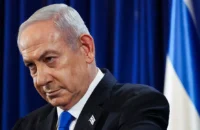One reason India and Pakistan can’t resolve the Kashmir issue is how the two interpret the Simla Agreement of 1972. The treaty put an end to the 1971 Indo-Pak war, thus endorsing the separation of East Pakistan as Bangladesh. The world takes cognisance of this treaty whenever a dispute erupts between the two South Asian rivals. What Pakistan conceded — without Pakistanis feeling too bad about it — was the text in the treaty: “That the two countries are resolved to settle their differences by peaceful means through bilateral negotiations or by any other peaceful means mutually agreed upon between them.”
Pakistan takes the official line that the above text doesn’t preclude its right to address international fora on the Kashmir issue because Simla Agreement doesn’t invalidate the UN Security Council resolutions on Kashmir. The stance, as explained by a foreign office spokesperson in Islamabad, in 2014, was: “Countries are condemned every year on various forums in the the UN, on one issue or the other, for violating the UN General Assembly and Security Council resolutions”. This has been repeated in Islamabad on September 2: “Simla Agreement can’t change UN resolutions.”
But who is going to finally decide whose point of view is valid? Has the Kashmir issue been “bilateralised” or is it still open to a “multilateral” solution? Whether one likes it or not, the decision on this issue will always be political. Where does the world stand on Kashmir in 2016 as the Valley erupts again and India is crushing the Kashmiri protests with brute force? The pictures that the world sees of the latest outbreak are not pleasant and many in India are pained by what the TV channels are carrying daily into their bedrooms. Nationalism cannot be the permanent carapace of conscience.
But Pakistan is in a much worse position. If the Kashmiris want to make a case in front of the court of international opinion — and Pakistan wants that — they should be told by Pakistan not to raise the Pakistani flag when fired upon by Indian troops. The world simply looks away when a reference to Pakistan crops up. The “liberators” of Kashmir — the jihadis in Pakistan’s proxy war — carry UN bounty on them and are roaming around in Pakistan despite its commitment under the National Action Plan to get rid of “armed militias”. Unlike in the past, many columnists are asking for action against men like Masood Azhar and Hafiz Saeed.
In June 2000, the International Court of Justice (ICJ) rejected Pakistan’s application against India in the Atlantique case on grounds of lack of jurisdiction. In 1999, Pakistan had brought up the shooting down of a non-combat aircraft within Pakistani territory by India, which killed 16 crew members. The case couldn’t proceed because of the “optional clause” of the court allowing the target state to disavow jurisdiction. But then the court did something very significant. It reverted to the irreducible political nature of the enforcement of international law under the UN system by referring to the Simla Accord and the Lahore Declaration of February 1999 under which India and Pakistan are morally obliged to settle their “differences” bilaterally in light of Article 2 of the UN Charter.
But facts will intervene despite whatever decision Pakistan takes about internationalising the Kashmir issue. Pakistan had begun using its proxy warriors right after 1947. The cross-border covert war began hurting the world after terrorism, learned in Pakistani and Afghan training camps, spread out to Europe and America. As Pakistan faces internal disturbance by terrorists — who once formed its foreign policy tools – it is becoming aware of the futility of posing as a rights advocate against India and Bangladesh. Increasingly, Pakistani intellectuals are asking the state to cleanse itself of terror before regaining the confidence and sympathy of the international community.
(This article first appeared in the print edition under the headline ‘The bilateral bind’)



























